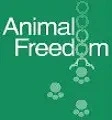From traditional farming to industrial production
How it used to be
Before the Second World War, when expansion and rationalization had not yet struck the livestock industry, animals were born at the farm in spring. Now, in most cases, pigs and chickens are born in specialized multiplying farms, all year round. Calves are born in the "classic" dairy farms to stimulate their mother's milk yield, a rather silly reason. In most cases the calf will then be transported for slaughtering directly, or after being fattened up.
For the moment this is the only way. If it was technically possible for cows to keep producing milk without calving, this system would have been introduced a long time ago.
Rationalization and efficiency
The rationalization of "modern" livestock industry has everything to do with running the farm as efficiently as possible. The costs should be low enough for the "product" to compete with foreign producers. Not many Dutch people realize that the Dutch cattle farmer produces mainly [two thirds] for the foreign market. To make that possible, the post-war agricultural ministers, for the most part advised by the Agricultural University at Wageningen, the Netherlands, told every farmer to specialize, invest and scale-up. And that is exactly how the love for animals disappeared from farming.
Most cattle farmers no longer see their animals grow up from birth to death. If they did, they would still no longer see the individual animal due to the large numbers of them.
Where the ethical problems lie
Birth and death are not the main issues
The unethical part of the bio-industry is not initially to be found in the moment of birth or slaughter. The animal's birth and death are necessary as long as people and animals eat meat. In practice this is organized on an industrial scale but we can find little fault with it, although it cannot exactly be called respectful. It is not a romantic sight to see chickens being born in large numbers from eggs in incubators and subsequently see them being sexed.
However, in this case of mechanization there is hardly any question of damage to animal welfare. Of course, we would like a chicken to be born under its mother's wings, but we can imagine that this is hardly possible economically. Still, it is true that if newborn chickens are treated as "things" it is not a good sign for its treatment in the weeks to come. The fact that the young cockerel will be shredded or gassed is a sign of industrial indifference. However serious this might be, it is a question of personal taste. The cockerels cannot be put in an animal home.
If it were possible to influence the chicken's gender at the moment of conception or if there were a technical solution, it would have been introduced a long time ago. It is firmly established that this animal is not kept alive under unpleasant circumstances (bio-industry). Worse is the situation for animals that are economically important (egg laying-hens, chickens and pigs used for consumption, sows and, to a lesser extent, the dairy cows).
The real problems: life and transport
The more important ethical objections to bio-industry lie between life and death, that is during their growing up and during the long, often international transport of the animals. Now, because of specialization, the farmers and the transporters are the ones who volunteer to do the dirty work.
The farming industry has made it easy for the cattle farmer by the construction of stables and by the possibility of production on a large scale. The newly born chickens or pigs are delivered at the farm and picked up as soon as the animal has reached the right weight for slaughtering after a number of weeks or months. As for its age, the animal is adolescent, not even fully grown. If the farmer cannot or does not want to grow the food himself, it is delivered and the milk is picked up. The only things these dairy farmers do is milk cows or operate the milking machine and feed the cattle. Anyway, that is the job that the agricultural industry rather leaves to the dairy farmer, because of the long and unfavourable working hours and the bad image. This is even stronger the case for pig farmers and chicken farmers who are not bound to the land. |

